A knee percussion hammer, also known as a reflex hammer, is a medical tool used by healthcare professionals to test deep tendon reflexes, particularly the patellar reflex (knee-jerk reaction). It plays an essential role in neurological examinations, helping doctors assess the integrity of the nervous system and detect potential abnormalities in nerve function. The hammer is commonly used to evaluate the reflexes of the knee, ankle, and other joints, giving insights into the patient’s neuromuscular health.
Typically, a knee percussion hammer has a handle and a weighted, rubberized head. The head of the hammer is shaped to deliver controlled taps to the tendons without causing discomfort. When the healthcare provider strikes the patellar tendon just below the kneecap, a healthy reflex will cause the lower leg to extend involuntarily. The strength and speed of this reflex can indicate how well the nervous system is functioning.
Made from durable, lightweight materials like stainless steel or high-grade plastic, the knee percussion hammer is designed for ease of use and precision. The handle is often ergonomic, ensuring a comfortable grip for the practitioner while delivering accurate, measured taps. Some models also include additional features, such as a brush or needle, to perform more comprehensive neurological assessments.
One of the key advantages of the knee percussion hammer is its ability to help diagnose conditions affecting the central or peripheral nervous system, such as nerve damage, spinal cord injuries, or neuromuscular diseases. By testing reflexes, clinicians can assess nerve conductivity and muscular responses, guiding further diagnostic testing or treatment.
In summary, the knee percussion hammer is an indispensable tool in neurological exams, providing quick and reliable assessments of tendon reflexes to help diagnose and monitor various nerve and muscular conditions.

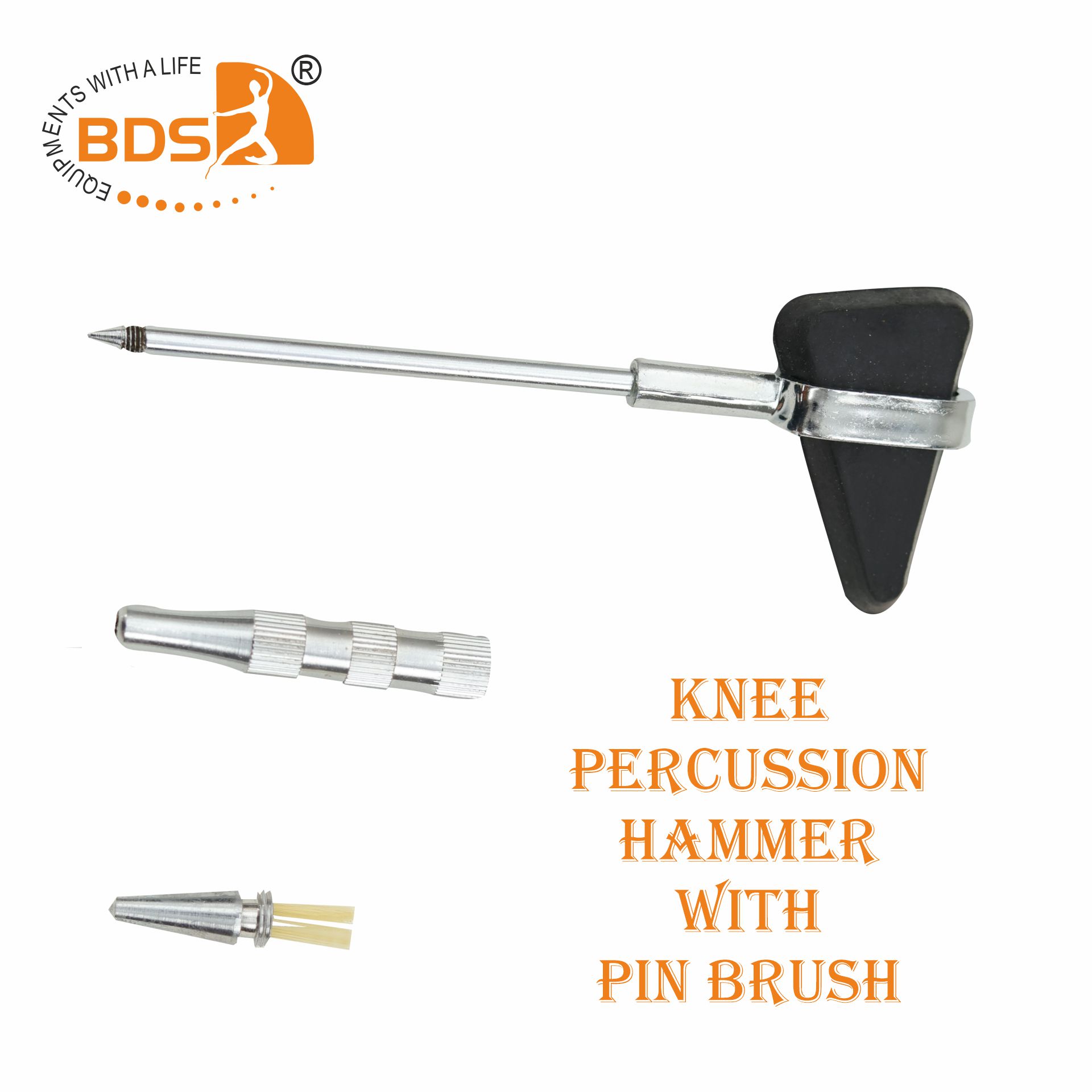



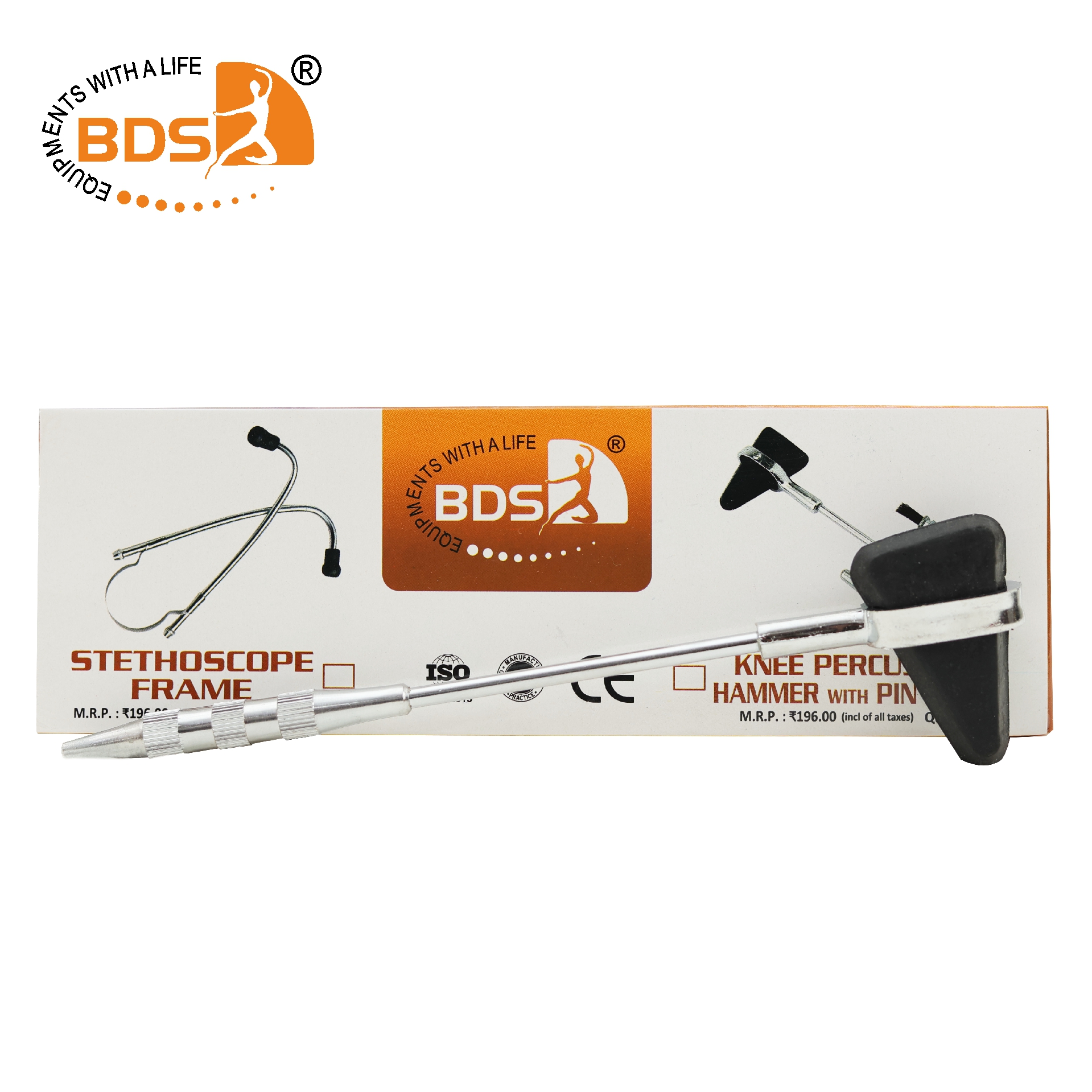
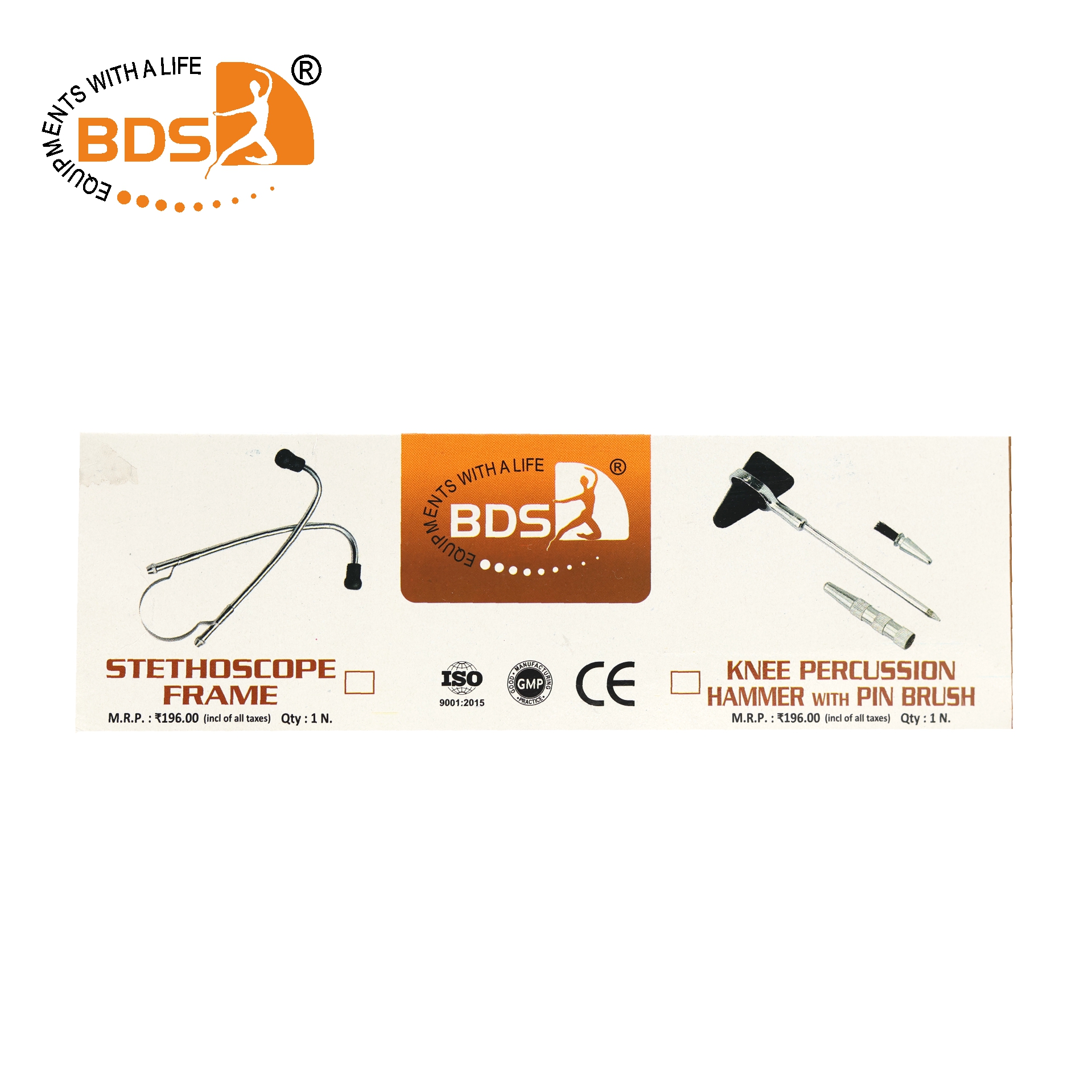
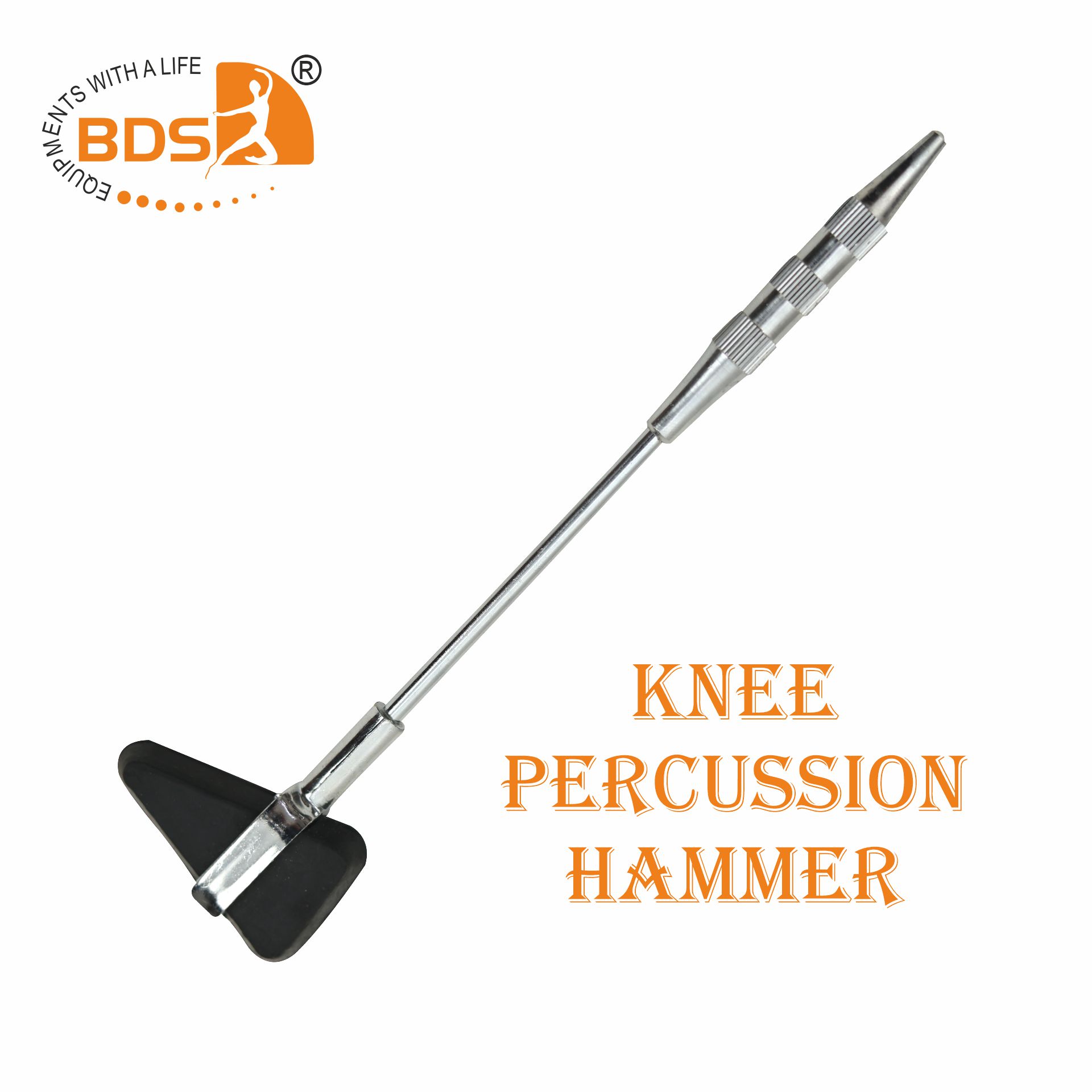
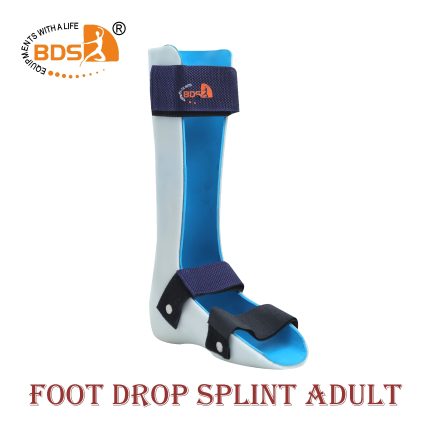

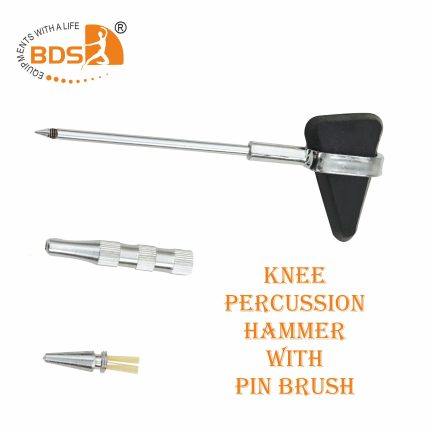
Reviews
There are no reviews yet.